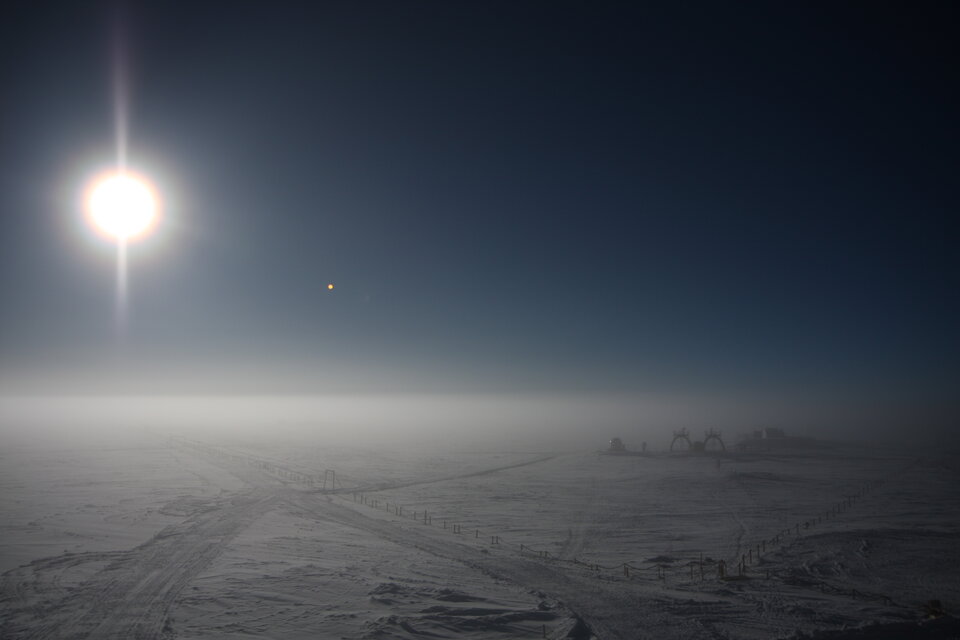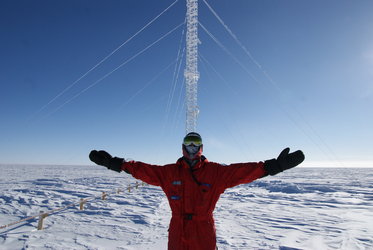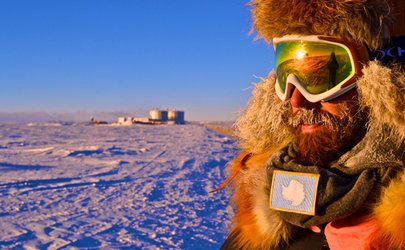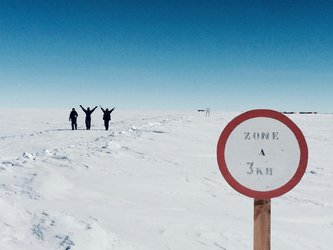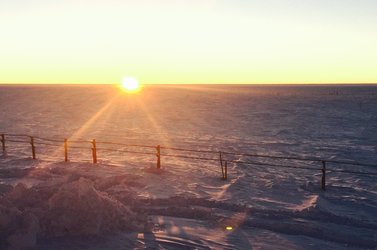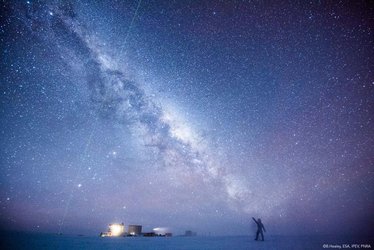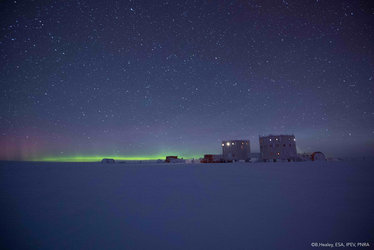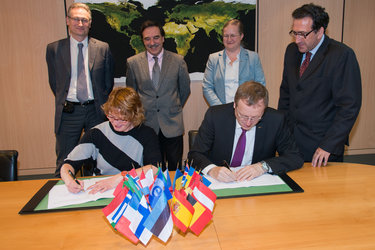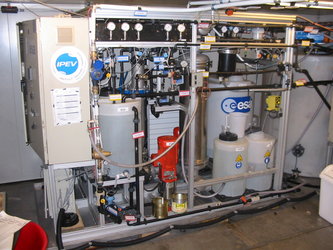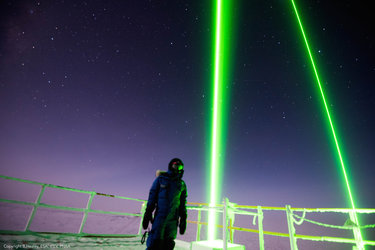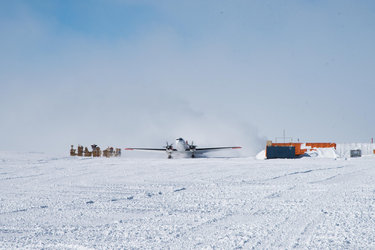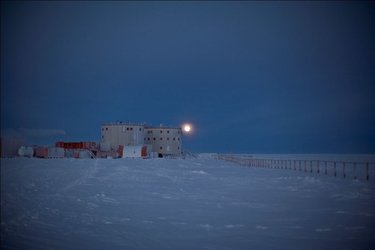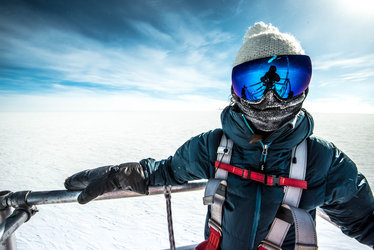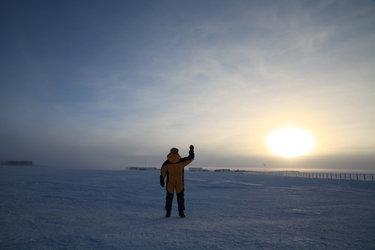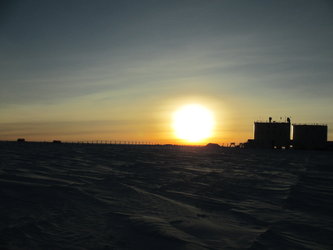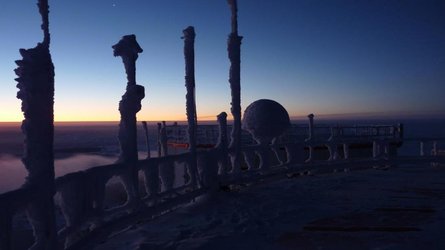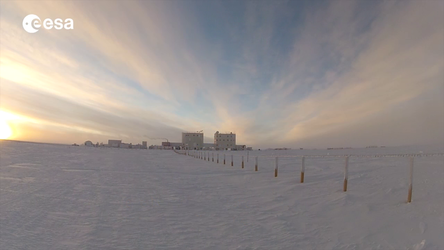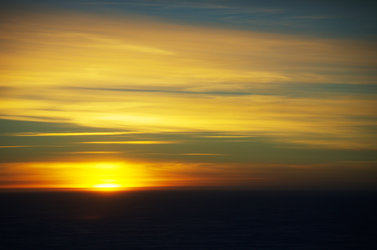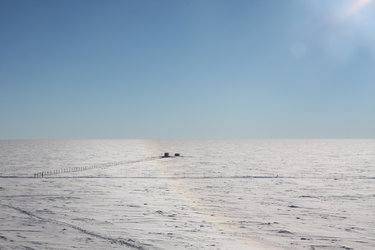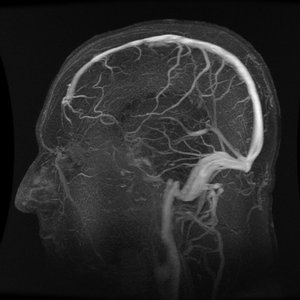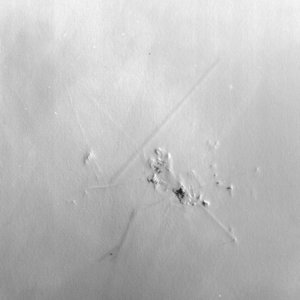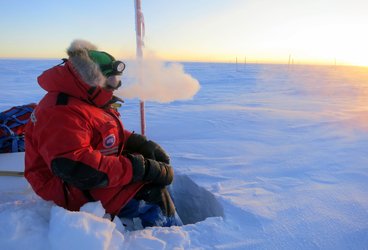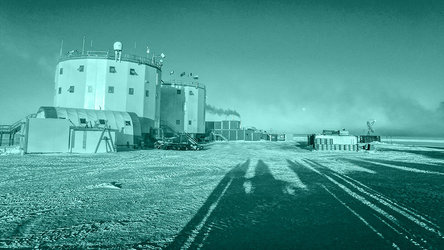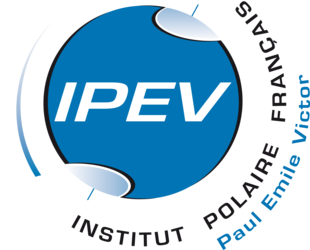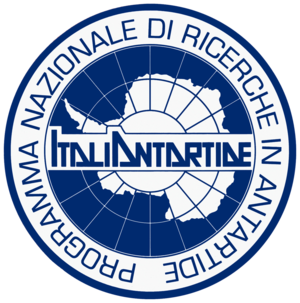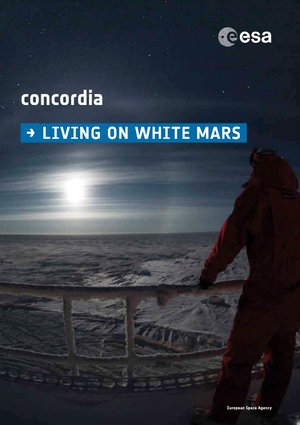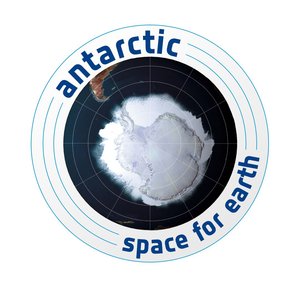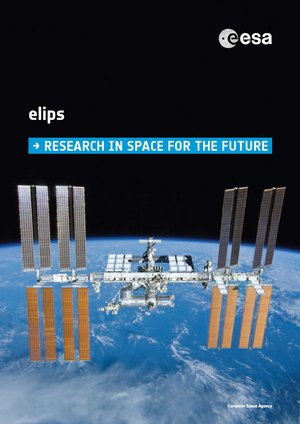The long winter ahead
Secluded from civilisation and living in a white desert, the crew at the Concordia research base in Antarctica have settled in to their home and are ready for the cold, long winter ahead.
After a period of adaptation to the sub-zero temperatures and high altitude on the Antarctic plateau, the base was prepared for three-quarters of a year of self-sufficient running. Food, fuel and equipment were ferried in over land and by air while personnel worked on maintaining the base and its equipment.

The last plane left the base last month, signalling the start of winter and the isolation it brings. Temperatures can drop to –80°C and the Sun does not rise above the horizon for around four months, leaving the base in permanent darkness. The crew have only themselves to rely on – there can be no help from the outside under these harsh conditions.
Far from entering a state of hibernation, the crew will be observing Earth’s climate in a unique location at the end of the world.
This year, the base will be operating at high capacity, with all but one of the winter beds filled by scientists and technicians. Astronomers, glaciologists, seismologists and a meteorologist are supported by a plumber, electrician, mechanic and cook, among others, to form a team and survive the long winter.

ESA has sent a medical doctor to study the multicultural crew as they adapt and work together. This year, medical doctor Evangelos Kaimakamis from Greece is running eight experiments preparing for future spaceflight.
For topics ranging from crew morale and efficiency to blood pressure and posture, Concordia provides an environment similar in some respects to spaceflight. Even materials that could be used in human spacecraft are tested there. Which material stands up best to the inevitable bacteria that settle and colonise humans’ surroundings?
How will the multicultural crew stand up to the stressful, isolated environment as they perform their research? Follow the Chronicles from Concordia blog for regular updates from the dark white south.
For background information on Concordia and a list of this year’s ESA experiments, follow the links to the left.















 Germany
Germany
 Austria
Austria
 Belgium
Belgium
 Denmark
Denmark
 Spain
Spain
 Estonia
Estonia
 Finland
Finland
 France
France
 Greece
Greece
 Hungary
Hungary
 Ireland
Ireland
 Italy
Italy
 Luxembourg
Luxembourg
 Norway
Norway
 The Netherlands
The Netherlands
 Poland
Poland
 Portugal
Portugal
 Czechia
Czechia
 Romania
Romania
 United Kingdom
United Kingdom
 Slovenia
Slovenia
 Sweden
Sweden
 Switzerland
Switzerland


























